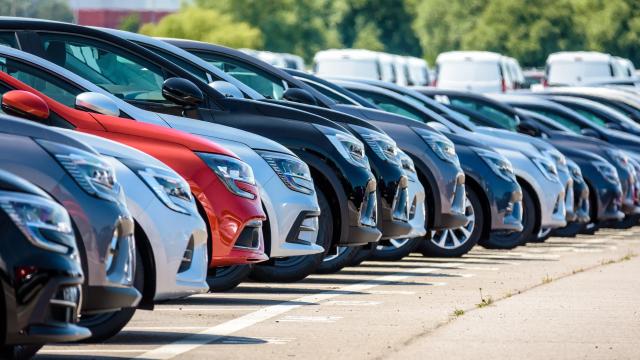If you’re someone wondering how to afford housing, health, and all the essentials of life, you’re probably happy to hear about new financial tips that can help you spend less and save more. So here’s one of the best money hacks you’ll ever hear: You should never, ever buy a new car.
This is true not just because new cars are increasingly incredibly expensive, with average prices topping out near $US50,000 and just 8% of new cars on the market priced below $US30,000. Buying a new car is simply a terrible financial decision in every sense. You’ll almost always come out better buying a used car of relatively recent vintage, and you’ll be even better off without a car at all if you can manage it. Here’s why.
The depreciation and costs of buying a new car
First and foremost, a new car will lose nearly a third of its value within the first year, no matter how well you maintain it. You can get monthly oil changes and spend hours washing and waxing that baby and it will still be worth 20-30% less after twelve months. That means if you spent $US50,000 on a new vehicle today, by next year it would be worth about $US35,000.
And the depreciation never ends. After the first year, your car will lose about 15-18% of its value annually, for a total depreciation of about 60% after five years. So if you buy a 2024 model this year for $US50k, by 2029 it’ll be worth just $US20,000. If anyone suggested you invest in anything else that would lose 60% of its value guaranteed, you would walk away.
Second, if you’re like most people, you’re borrowing money to buy that car, so on top of overpaying for the car in the first place because of near-instant depreciation, you’re paying interest to service that loan. Depending on your credit score and the structure of the loan, those interest rates can be as high as 20%. And that monthly payment doesn’t include insurance, maintenance, or fuel costs.
How to avoid vehicle depreciation
If you can’t live without a car, you are much better off buying a pre-owned vehicle. There’s one basic reason for this: If you buy a five-year-old car, you’re avoiding all of that drastic depreciation. While your vehicle will still lose value over time, it won’t be nearly as dramatic a loss. That formerly $US50k car you buy for $US20k when it’s five years old will be worth about $US10k after another five years, and about $US6k five years after that.
And while maintenance costs for any car will rise with its age, this is true for new cars as well. Since the average motorist drives about 13,500 miles per year, your five-year-old used car probably has about 112,654 km on it, and it probably cost an average of about $US7,000 to maintain in that time. Maintaining that car through the next 5 years and 112,654 km will cost you an average of about $US10,000. More expensive, yes — and these are averages based on a whole lot of assumptions, so your mileage may literally vary here — but not so much more expensive as to offset the higher cost of ownership and greater depreciation of a new car. And a used car will also be cheaper to insure (because it’s literally worth less, natch).
Of course, you give something up when you buy a used, older car. It probably won’t have the newest technology, and you’ll have to deal with annoyances left behind by the owner, whether it’s impossible-to-remove bumper stickers or the baked-in scent of a dedicated vaper. And there’s also the simple psychological safety of having a brand-new vehicle you can assume will be reliable and worry-free for many years.
But the takeaway is simple: New cars don’t offer enough value for the extra money. If you have that extra money lying around, there’s no reason not to splurge on a new car. But if you’re watching your budget, there’s no strong reason to splurge on a new car. Save yourself some money and buy something gently used.

Leave a Reply
You must be logged in to post a comment.